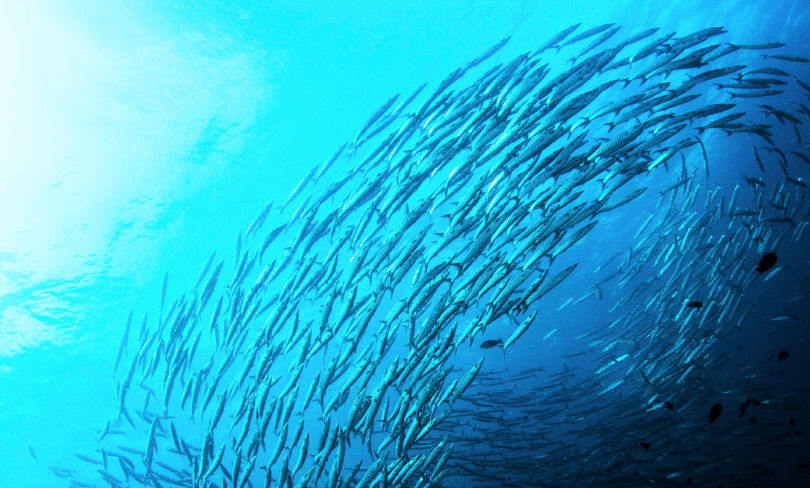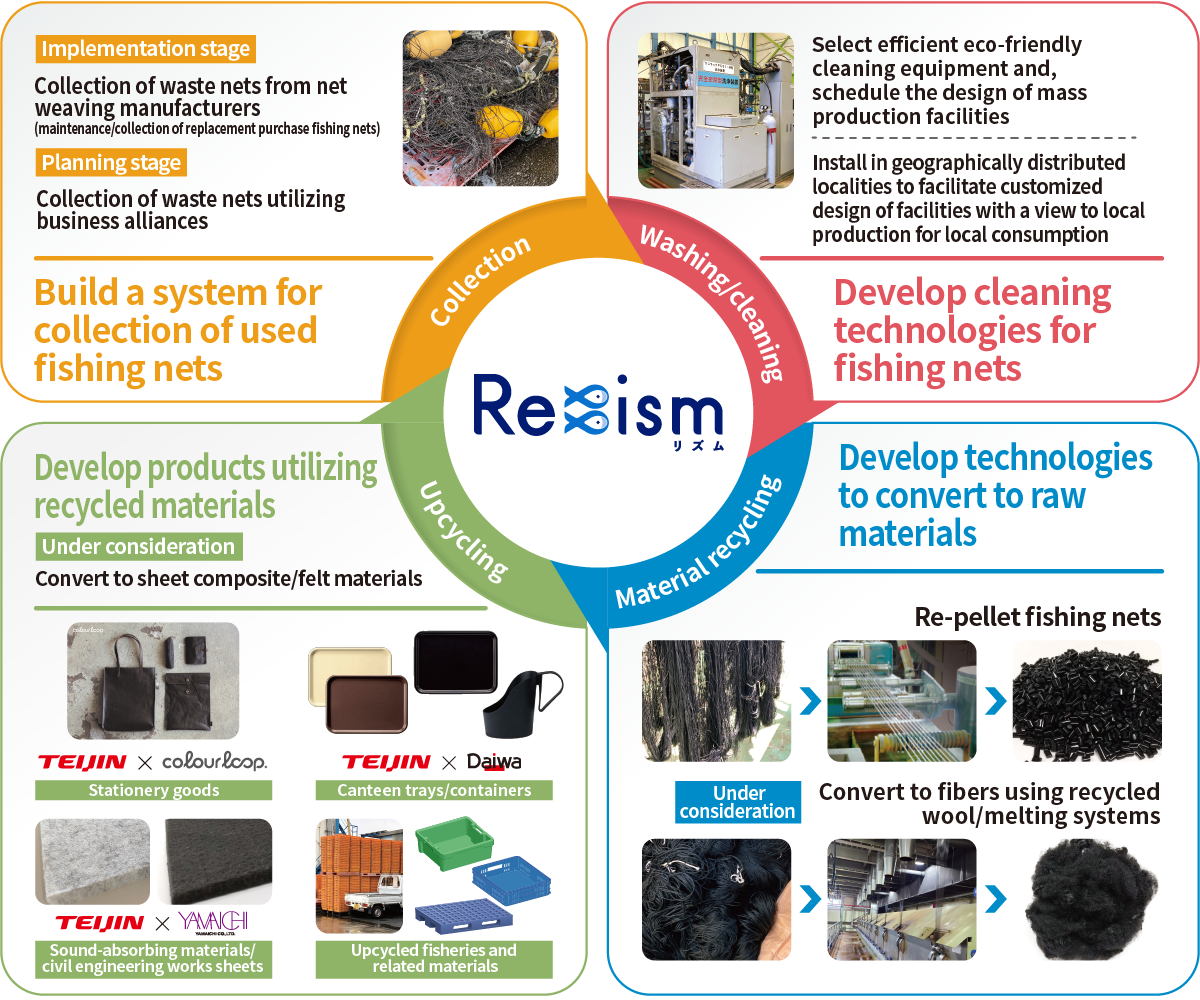Materiality 2 Achievement of a Circular Economy

The Teijin Group will contribute to the establishing of a circular economy by extending product life spans and promoting the 3Rs (reduce, reuse, recycle).

Until now society has evolved through the repeated mass production, mass consumption, and mass waste. The result, however, has been the depletion of resources and environmental pollution, which in turn have wreaked enormous damage on ecosystems. As a manufacturing company producing materials and other products, the Teijin Group has been striving to implement the 3Rs toward the realization of a recycle-oriented society, but we realize that even more effort is required. It is for this reason that we have identified “achievement of a circular economy” as a materiality.
A society in which a consumption-only economy continues is not a sustainable one. The Teijin Group wants to contribute toward the shift to a circular economy in which, just like the natural ecosystem cycle, resources continue to circulate, and the “throwaway” concept does not exist. We will, of course, endeavor to recycle resources in our production activities. But even more, we will promote the circularization of society by, for example, encouraging a material recycling based on local production for local consumption in which discharged resources are used as recycled products and returned to the market. In this way, we will also contribute toward solving the increasingly serious problem of marine plastics.
Environmental Value Solutions: Recycling, etc.
Achieving a circular economy will require the transformation of social structures so that resources can continuously be used without the generation of hazardous waste, rather than assuming that waste will be produced. The Teijin Group strives to provide highly durable and high-quality products that extend the life spans of products and promote sharing and contributes to improving resource circulation throughout the value chain by utilizing partnerships forged through the development and provision of recycling technologies.
Initiatives to address the plastic marine waste problem
Detrimental impacts from plastic marine waste on life and ecosystems through marine pollution and food chains have become a serious global problem.
In September 2018, the Teijin Group issued the "Declaration for Solving the Plastic Marine Waste Problem" to demonstrate its commitment to tackling the problem of plastic marine waste.
While regulatory trends surrounding marine plastic waste could elevate the risk of a loss of existing business, the Teijin Group considers this as an opportunity to drive growth in the markets for recycling and alternative products. Based on this belief, the Teijin Group is advancing initiatives to reduce environmental loads and provide environmental value solutions.
Teijin Limited initiated "Re:ism," a new project for material recycling of fishing nets, in 2021. Teijin and four companies specializing respectively in fishing net manufacture, plastic molding, textile processing, and resin treatment, divide supply chain tasks from collection to retail, developing businesses which give new life to polyester fishing nets which have been converted to resin pellets, in the form of products including food trays and stationery. We will continue to efficiently recycle fishing nets, including those which have been discarded on coastlines and landfilled, to actively contribute to the reduction of marine waste.

Other initiatives towards ”achievement of a circular economy”
- Teijin Aramid B.V.「Sustainability」
- Teijin Frontier Co., Ltd.「THINK ECO」
- Teijin Limited, Resin and Plastic Processing Business Unit「designing Circular Materials」
Resource-Efficient Use and Waste Minimization
To promote resources recycling and reduce waste, the Teijin Group has set a target of improving the landfill waste volume per sales unit by 20% by FY2030 compared to FY2018. To preserve water resources, we are also expanding products with low water usage to achieve a target of reducing freshwater intake volume per sales unit by 30% by FY2030 compared to FY2018.

